Abstract
Two groups of six rats received discrimination training with two auditory stimuli differing in intensity. During one stimulus, the schedule was variable interval; during the other, it was either variable time or extinction. Both the variable time and extinction schedules resulted in differential rates of responding in the presence of the two stimuli. Extinction resulted in an earlier and more stable difference. Stimulus generalization gradients obtained along the noise-intensity dimension revealed peak shift with both procedures. In addition, a secondary peak to stimuli in between the two training stimuli occurred with the variable-time schedule.
Full text
PDF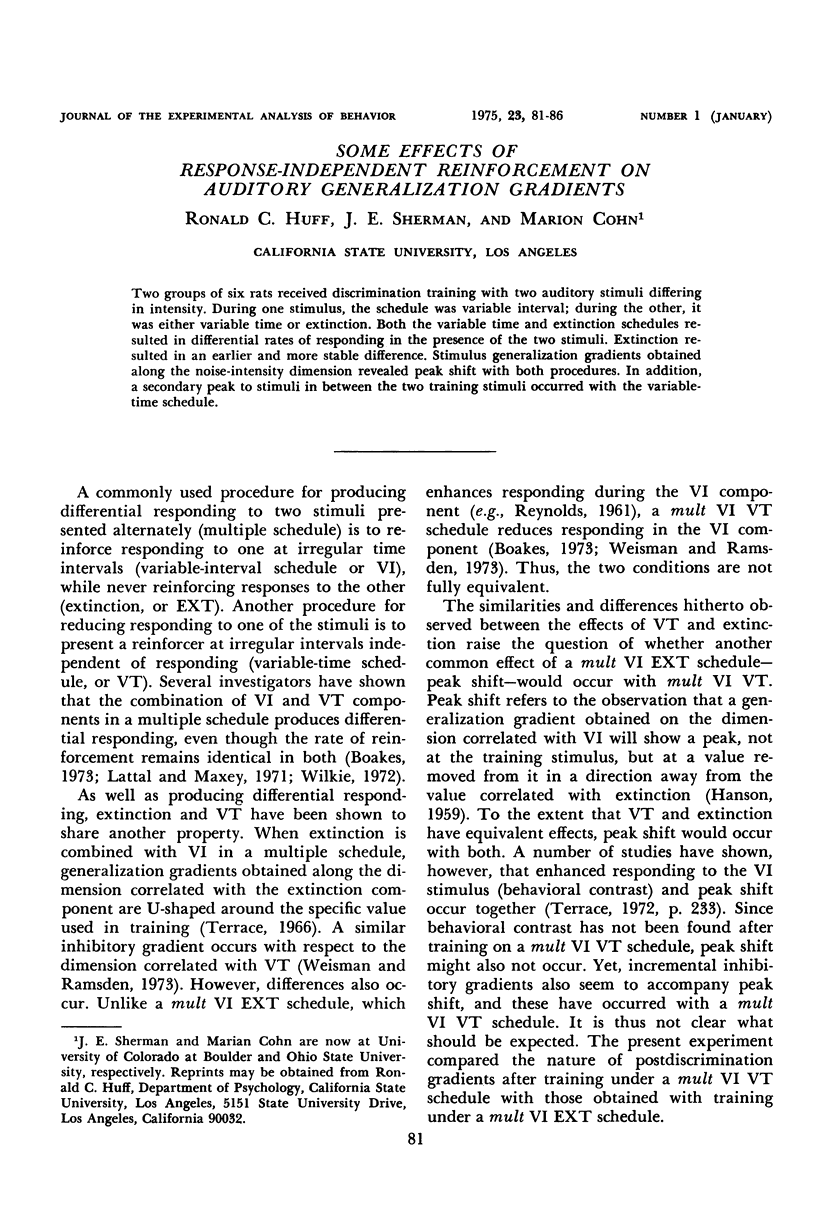
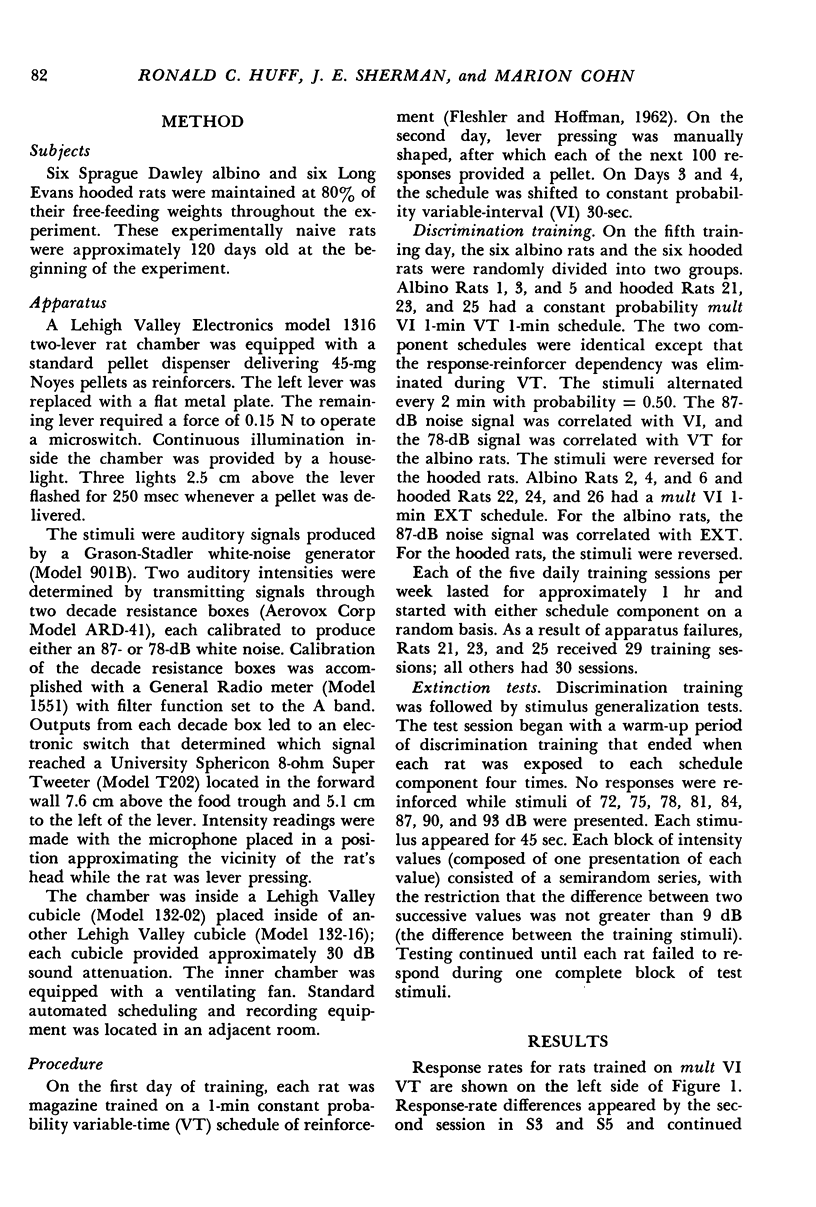
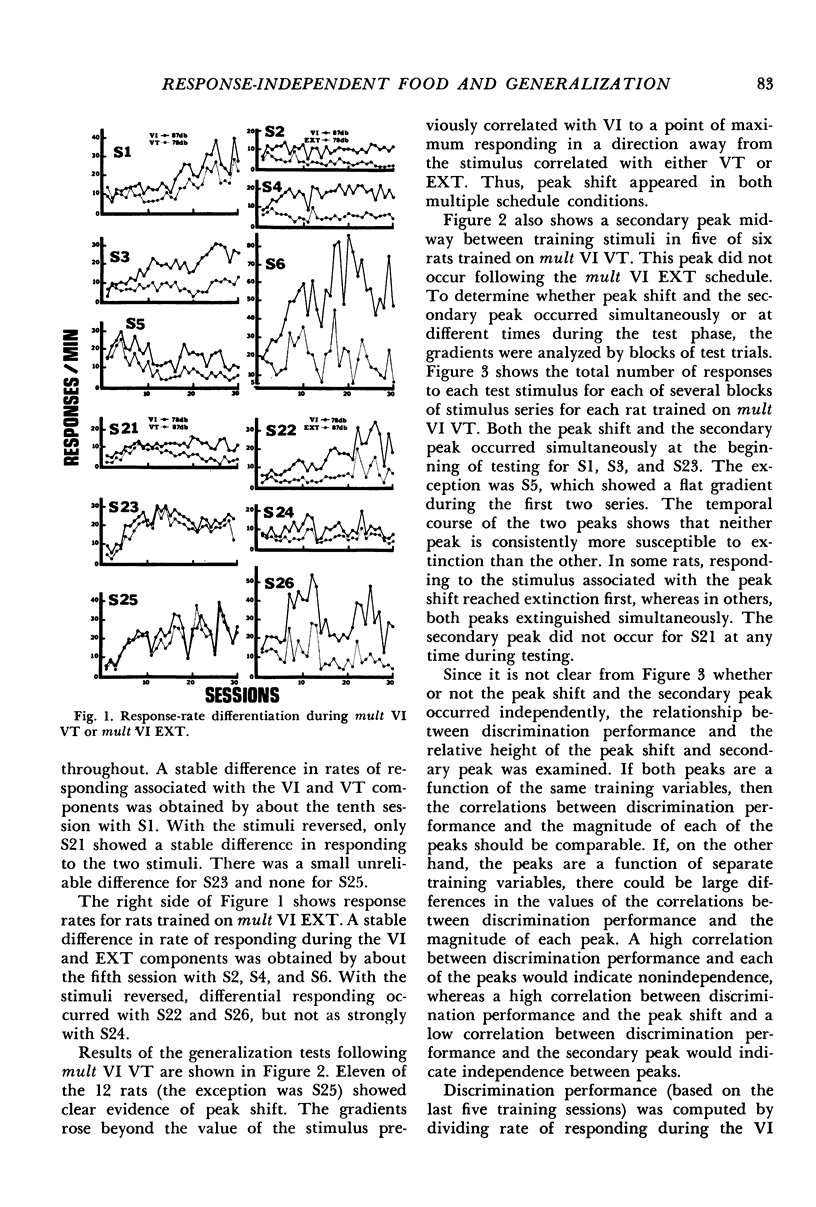
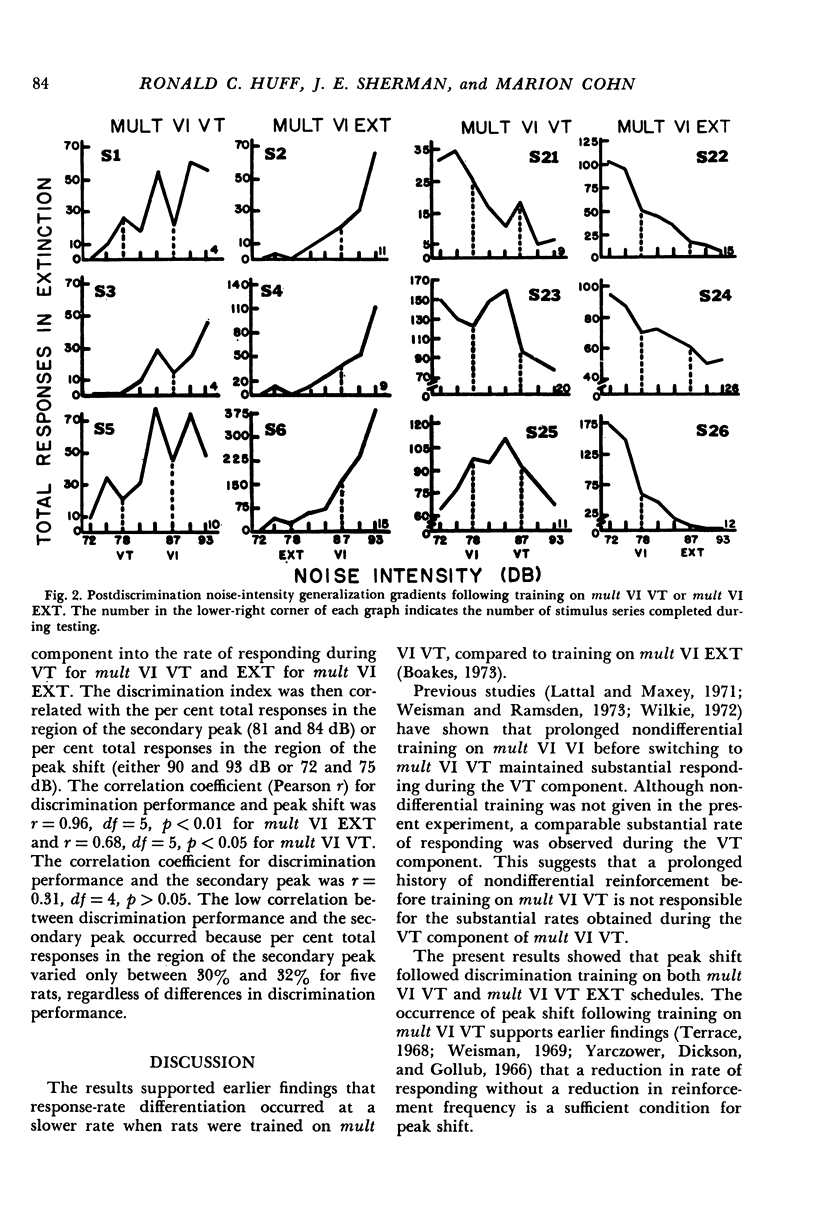
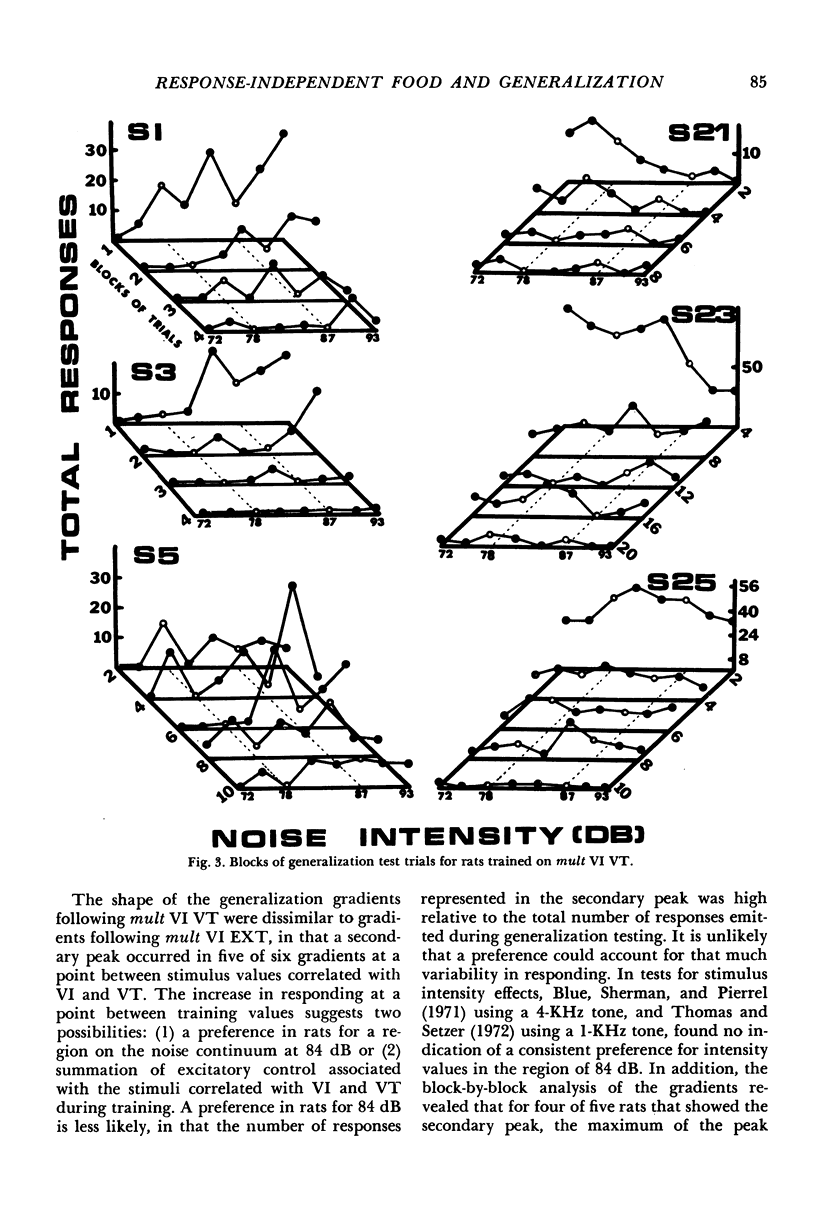
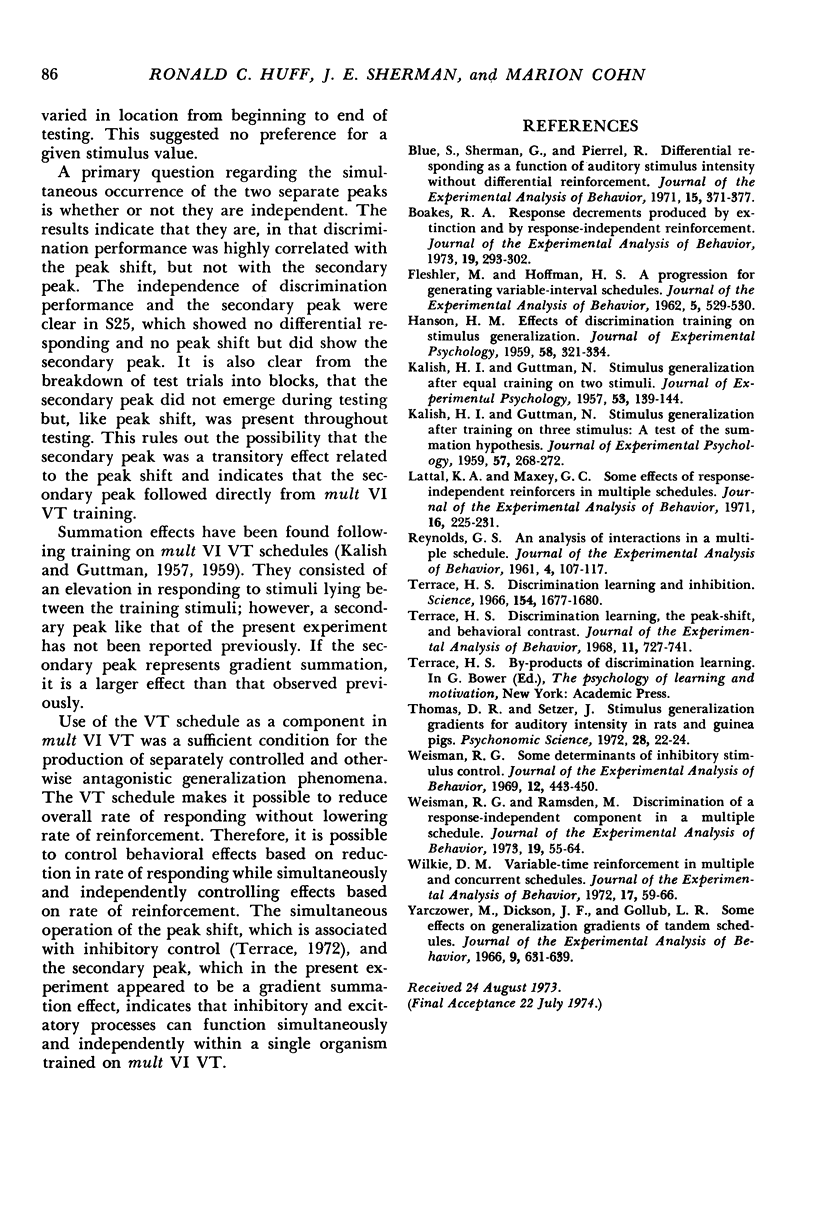
Selected References
These references are in PubMed. This may not be the complete list of references from this article.
- Blue S., Sherman J. G., Pierrel R. Differential responding as a function of auditory stimulus intensity without differential reinforcement. J Exp Anal Behav. 1971 May;15(3):371–377. doi: 10.1901/jeab.1971.15-371. [DOI] [PMC free article] [PubMed] [Google Scholar]
- Boakes R. A. Response decrements produced by extinction and by response-independent reinforcement. J Exp Anal Behav. 1973 Mar;19(2):293–302. doi: 10.1901/jeab.1973.19-293. [DOI] [PMC free article] [PubMed] [Google Scholar]
- FLESHLER M., HOFFMAN H. S. A progression for generating variable-interval schedules. J Exp Anal Behav. 1962 Oct;5:529–530. doi: 10.1901/jeab.1962.5-529. [DOI] [PMC free article] [PubMed] [Google Scholar]
- HANSON H. M. Effects of discrimination training on stimulus generalization. J Exp Psychol. 1959 Nov;58:321–334. doi: 10.1037/h0042606. [DOI] [PubMed] [Google Scholar]
- KALISH H. I., GUTTMAN N. Stimulus generalization after equal training on two stimuli. J Exp Psychol. 1957 Feb;53(2):139–144. doi: 10.1037/h0047916. [DOI] [PubMed] [Google Scholar]
- KALISH H. I., GUTTMAN N. Stimulus generalization after training on three stimuli: a test of the summation hypothesis. J Exp Psychol. 1959 Apr;57(4):268–272. doi: 10.1037/h0046433. [DOI] [PubMed] [Google Scholar]
- Lattal K. A., Maxey G. C. Some effects of response independent reinforcers in multiple schedules. J Exp Anal Behav. 1971 Sep;16(2):225–231. doi: 10.1901/jeab.1971.16-225. [DOI] [PMC free article] [PubMed] [Google Scholar]
- Reynolds G. S. An analysis of interactions in a multiple schedule. J Exp Anal Behav. 1961 Apr;4(2):107–117. doi: 10.1901/jeab.1961.4-107. [DOI] [PMC free article] [PubMed] [Google Scholar]
- Terrace H. S. Discrimination learning and inhibition. Science. 1966 Dec 30;154(3757):1677–1680. doi: 10.1126/science.154.3757.1677. [DOI] [PubMed] [Google Scholar]
- Terrace H. S. Discrimination learning, the peak shift, and behavioral contrast. J Exp Anal Behav. 1968 Nov;11(6):727–741. doi: 10.1901/jeab.1968.11-727. [DOI] [PMC free article] [PubMed] [Google Scholar]
- Weisman R. G., Ramsden M. Discrimination of a response-independent component in a multiple schedule. J Exp Anal Behav. 1973 Jan;19(1):55–64. doi: 10.1901/jeab.1973.19-55. [DOI] [PMC free article] [PubMed] [Google Scholar]
- Weisman R. G. Some determinants of inhibitory stimulus control. J Exp Anal Behav. 1969 May;12(3):443–450. doi: 10.1901/jeab.1969.12-443. [DOI] [PMC free article] [PubMed] [Google Scholar]
- Wilkie D. M. Variable-time reinforcement in multiple and concurrent schedules. J Exp Anal Behav. 1972 Jan;17(1):59–66. doi: 10.1901/jeab.1972.17-59. [DOI] [PMC free article] [PubMed] [Google Scholar]
- Yarczower M., Dickson J. F., Gollub L. R. Some effects on generalization gradients of tandem schedules. J Exp Anal Behav. 1966 Nov;9(6):631–639. doi: 10.1901/jeab.1966.9-631. [DOI] [PMC free article] [PubMed] [Google Scholar]


